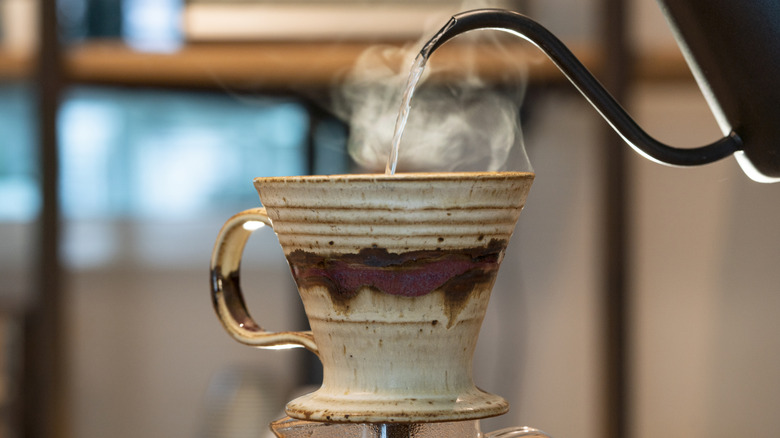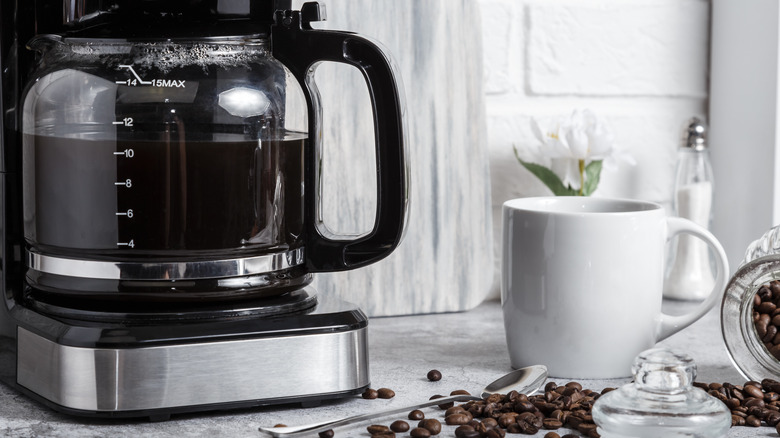The Best Type Of Water For Your Home-Brewed Coffee
If you're a casual coffee drinker, then you're probably happy with your current setup and simply brewing coffee the way your grandma taught you. Coffee is coffee, right? However, if you're interested in brewing that perfect cup (or getting close to it) there's absolutely a science to coffee that you can use to your advantage. Measuring out the grounds is important, and so is the water you use. Do you know if you're brewing with soft water or hard water? And which one of those is your tap water?
Chowhound spoke exclusively with Taylor Young, an ACS-certified chemist and the Quality Director at Copper Moon Coffee. According to Young, "The best water for brewing coffee is clean, filtered water with a balanced mineral concentration/content." Typically, this is bottled water or purified water, and sometimes filtered tap water depending on where you live. If you're really looking to get the chemistry right, Young goes into more detail: "Ideally, you want a 100 to 200 ppm total dissolved solids (TDS) range as well as a pH which is neutral or very slightly acidic (6.5 to 7.5). You should never use distilled water or any overly softened water, since the lack of minerals can actually inhibit taste, flavor, and extraction." Any water with over 120 ppm to 150ppm (parts per million) is considered hard water, and most tap water in the United States fits or exceeds that amount, but it's not consistent.
How water changes your coffee
Sadly, most varieties of water available to you at home won't match up with that Taylor Young's ideal, 150 ppm neutral water which coffee shops have access to for their brews. Even tap water with an adequate hardness may have too strong of a chlorine flavor to brew coffee with it, although filtering it helps a great deal. If a tap water database says you don't have the proper tap water for coffee (which you'd then filter), then bottled filtered water or slightly alkaline water is your best bet. It will still taste fine.
Why does hardness matter? Your standard mug full of coffee is slightly over 98% water, and slightly less than 2% dissolved coffee beans. The result is that water changes brewed coffee quite a bit, and not just because it's the main ingredient. According to Young, water can mess with coffee's taste because it plays a role in how flavor is extracted from the grounds: "Minerals which are present in the water (such as calcium and magnesium) can enhance the perception of flavors, whilst impurities (like chlorine) can impart off-flavors," he says.
This is why the type of water is so crucial. "Basically, too much mineral content can result in overly-extracted bitter coffee while too little mineral content can result in under-extracted weaker/sour flavors." In fact, the water you use might be even more important than the order you add your cream and sugar.

